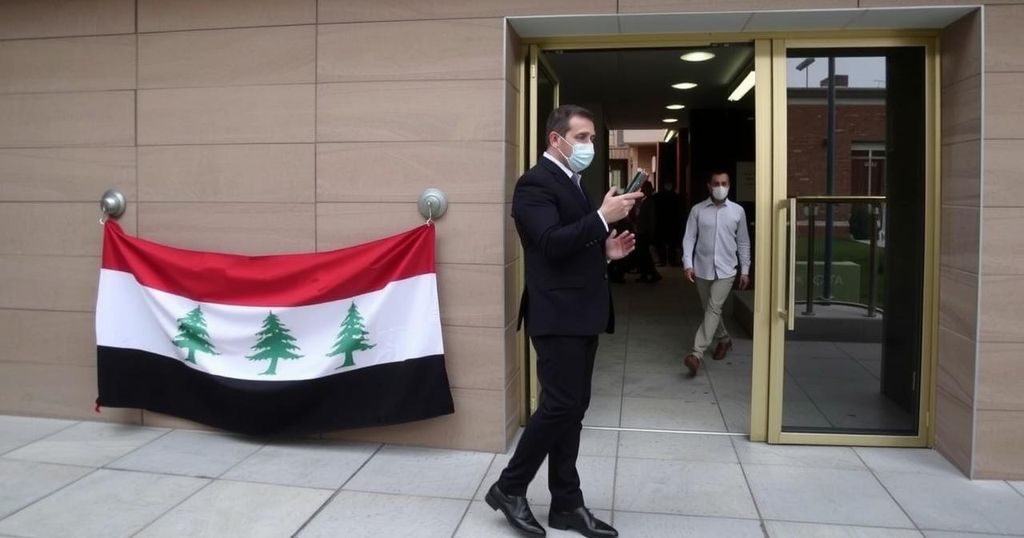The Syrian embassy in Lebanon has ceased consular services due to security developments, including the arrest of Assad’s relatives. Lebanese authorities deported former Syrian army officers to the new government, led by Ahmad al-Sharaa of Hayat Tahrir al-Sham. The situation highlights ongoing tensions, potential humanitarian concerns, and evolving relationships with regional powers.
The Syrian embassy situated in Lebanon has announced the suspension of its consular services following the arrest of two relatives of former President Bashar Assad at Beirut airport. The Lebanese authorities have also deported approximately 70 individuals, including former Syrian army officers, to the new Syrian regime. This situation arises amidst tensions and challenges in the region, as the recently established Syrian government, led by former insurgent group Hayat Tahrir al-Sham (HTS), consolidates power. The suspension of embassy services reflects broader political dynamics and security concerns in the area following the turbulent history of the Assad regime.
The Syrian observatory noted that among those handed over to the new Syrian authorities were several individuals formerly associated with Assad’s government. Meanwhile, regional countries are swiftly forging new relationships with the HTS leadership. Ahmad al-Sharaa, the de facto leader of the newly formed government, faces skepticism both internally and externally. Although he has taken measures to temper fears regarding extremism and revenge against Assad supporters, sporadic confrontations have ensued between HTS forces and pro-Assad groups.
Additionally, clashes have emerged in Northeastern Syria between Kurdish forces and factions supported by Turkey. The Kurdish community perceives changes in the Syrian landscape with caution, particularly given Ankara’s assumptions regarding Kurdish armed groups. In light of recent developments, U.S. Secretary of State Antony Blinken has engaged in discussions with Turkish officials to address security and political stability in the region. Concurrently, protests advocating for women’s rights have surfaced in Hasaka, reflecting the concerns regarding the status of women under the new regime led by HTS, which has, thus far, refrained from implementing stringent Islamic regulations.
The current dynamics between Syria and Lebanon reveal the ongoing ramifications of the Syrian civil war and the subsequent emergence of new political authority in Syria. Ahmad al-Sharaa, once a member of the insurgent faction against Assad, now leads the Syrian government as it establishes itself as the de facto authority in the country. The phasing out of Assad’s former regime representatives opens a chapter of uncertainty about governance and societal norms, particularly concerning human rights and the role of women. The embassies, as representative bureaucratic structures, have key roles in navigating these complex relationships, especially regarding the international community’s stance towards the new Syrian government.
In conclusion, the suspension of consular services by Syria’s embassy in Lebanon underscores the fragility of the new political landscape in Syria following years of civil conflict. As Lebanon responds to the influx of individuals formerly linked to the Assad regime, the HTS-led government faces both scrutiny and the need to establish legitimacy in the eyes of its citizens and international observers. The situation in northeastern Syria indicates emerging tensions that might shape future interactions among ethnic groups and armed factions, particularly regarding women’s rights and political representation amid ongoing grievances against previous regimes.
Original Source: apnews.com






